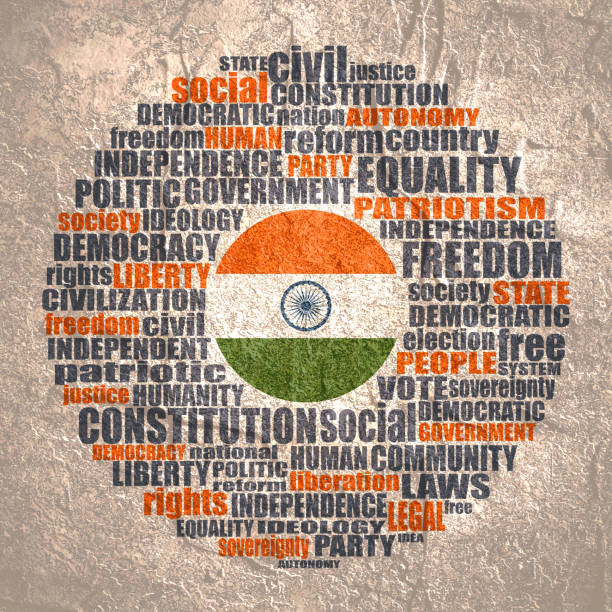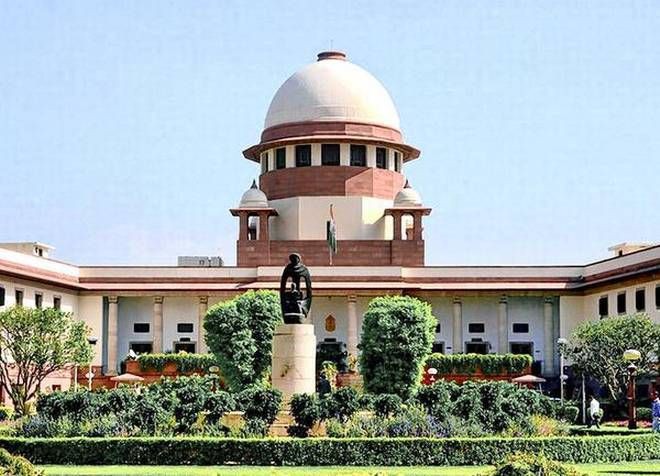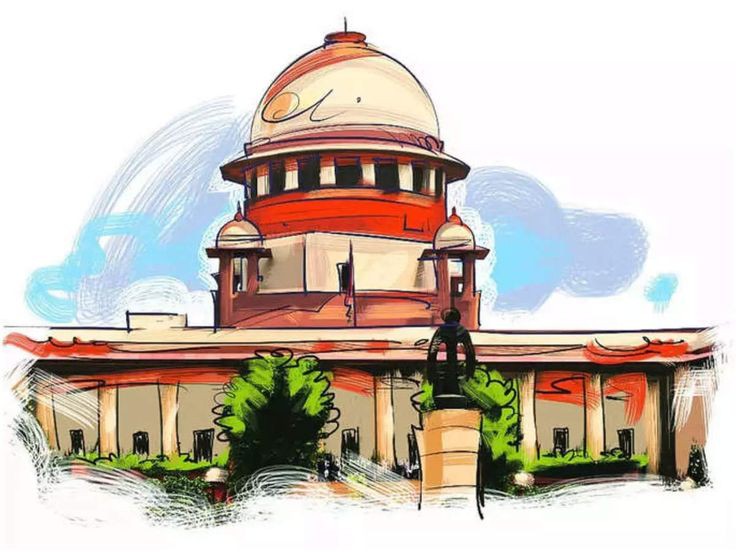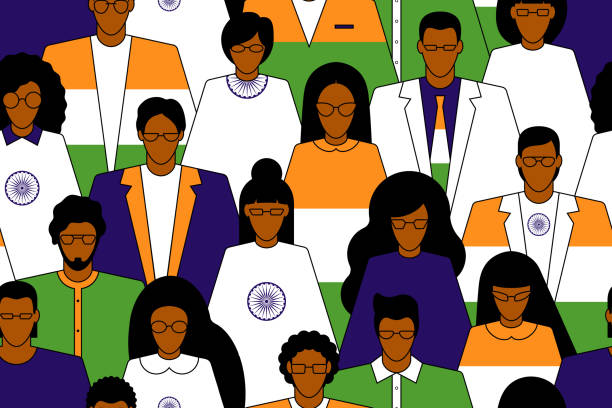constitutional morality encompasses a broader understanding of justice, equality, and fairness, rooted in the values and principles enshrined in the Constitution. In India, the concept of constitutional morality has gained significant importance, particularly in the context of contemporary debates and judicial pronouncements. This blog post aims to delve into the multifaceted aspects of constitutional morality, exploring its historical origins, its presence in the Indian Constitution, the challenges it faces in modern India, and the prospects for its future.

In This Post
ToggleWhat is constitutional morality
Constitutional morality refers to the ethical principles and values that guide the interpretation and application of a country’s Constitution. It means respecting the spirit of the Constitution, upholding the rights and freedoms it guarantees, and ensuring that laws and government actions are fair, just, and aligned with these core principles. In essence, it is about following not just the letter of the law but also the deeper moral and ethical values that the Constitution stands for, such as justice, equality, and respect for individual rights.
Historical Perspective
Origins of Constitutional Morality
The concept of constitutional morality is not new; its roots can be traced back to ancient democratic principles that emphasized the rule of law and the protection of individual rights. However, the term “constitutional morality” gained prominence in the 19th century, particularly through the works of British political philosopher A.V. Dicey. Dicey argued that constitutional morality is essential for the effective functioning of a constitutional democracy, as it ensures that the government operates within the bounds of the Constitution and respects the rights and liberties of individuals.I
n the Indian context, constitutional morality was a concept that Dr. B.R. Ambedkar, the principal architect of the Indian Constitution, held in high regard. Ambedkar believed that constitutional morality was crucial for the survival of democracy in India, a country characterized by deep-seated social hierarchies and inequalities. He argued that constitutional morality should guide the actions of the state and its institutions, ensuring that they remain committed to the values of justice, liberty, and equality.

Constitutional Morality in the Indian Independence Movement
The principles of constitutional morality were not only relevant in the post-independence era but also played a significant role in the Indian freedom struggle. The Indian National Congress, under the leadership of Mahatma Gandhi, adopted a moral approach to its fight against British colonial rule. Gandhi’s philosophy of non-violence (Ahimsa) and civil disobedience was rooted in a deep respect for constitutional principles, even when those principles were enshrined in colonial laws.
Leaders like Jawaharlal Nehru and Sardar Vallabhbhai Patel also emphasized the importance of constitutional morality in their vision for an independent India. They believed that the future of the country depended on its ability to build a democratic society based on the rule of law and respect for human rights. This belief was reflected in the Constituent Assembly debates, where the framers of the Indian Constitution deliberated extensively on the need to embed moral values in the country’s legal framework.
Constitutional Morality in the Indian Constitution
Foundational Principles
The Indian Constitution is a reflection of the moral and ethical values that the framers believed should guide the nation. The Preamble of the Constitution, which serves as its soul, outlines the foundational principles of justice, liberty, equality, and fraternity. These principles are not merely legal provisions but are imbued with deep moral significance.
They represent the aspirations of the Indian people and the ethical framework within which the state must operate.The concept of constitutional morality is closely tied to these foundational principles. It demands that the state and its institutions act in a manner that upholds the spirit of the Constitution, even in situations where the letter of the law may not provide clear guidance. For example, the principle of equality before the law (Article 14) is not just a legal requirement but also a moral obligation that the state must fulfill to ensure that all citizens are treated with dignity and respect
Key Constitutional Provisions Reflecting Constitutional Morality
Several provisions of the Indian Constitution embody the principles of constitutional morality. For instance, Article 21, which guarantees the right to life and personal liberty, has been interpreted by the Supreme Court to include a wide range of rights that are essential for leading a dignified life. This interpretation is a reflection of the court’s commitment to upholding constitutional morality by ensuring that the state does not infringe upon the fundamental rights of individuals.
Another key provision is Article 19, which guarantees the right to freedom of speech and expression. This right is essential for the functioning of a democratic society, as it allows individuals to express their opinions and participate in public discourse. The Supreme Court, in several landmark judgments, has upheld the importance of this right, even in cases where it conflicted with the interests of the state. This commitment to protecting individual freedoms is a testament to the court’s adherence to constitutional morality.

Case Studies of Landmark Judgments
Constitutional morality has been invoked in several landmark judgments by the Indian judiciary, where the courts have gone beyond the literal interpretation of the law to uphold the ethical principles enshrined in the Constitution. One such case is the Kesavananda Bharati case (1973), where the Supreme Court held that the basic structure of the Constitution cannot be altered by any amendment.
This judgment was significant because it reinforced the idea that the Constitution is not just a legal document but also a moral one that must be preserved in its essence.Another landmark case is the Sabarimala judgment (2018), where the Supreme Court struck down the ban on women of menstruating age entering the Sabarimala temple. The court held that the ban violated the constitutional principles of equality and non-discrimination, which are central to constitutional morality. The judgment was a bold assertion of the judiciary’s role in upholding the moral values enshrined in the Constitution, even in the face of social and religious opposition.
Present Scenario and Challenges
Constitutional Morality in Contemporary India
In contemporary India, the concept of constitutional morality has become increasingly relevant, particularly in the context of recent judicial pronouncements and public debates. The judiciary has played a crucial role in upholding constitutional morality, often stepping in to protect the rights of marginalized communities and ensure that the state acts within the bounds of the Constitution.
One of the most significant examples of this is the decriminalization of Section 377 of the Indian Penal Code, which criminalized consensual same-sex relationships. In its landmark judgment in 2018, the Supreme Court struck down this colonial-era law, declaring it unconstitutional. The court held that the law violated the principles of equality, dignity, and privacy, which are central to constitutional morality. This judgment was hailed as a victory for LGBTQ+ rights and a reaffirmation of the judiciary’s commitment to upholding constitutional values
Similarly, the Triple Talaq judgment (2017) is another example of the judiciary’s role in enforcing constitutional morality. The Supreme Court declared the practice of instant triple talaq (talaq-e-biddat) as unconstitutional, stating that it violated the fundamental rights of Muslim women. The judgment was a significant step towards ensuring gender justice and equality, which are key components of constitutional morality.

Challenges to Constitutional Morality
Despite the judiciary’s efforts to uphold constitutional morality, there are several challenges that threaten its effective implementation in India.
One of the most significant challenges is the rise of majoritarianism, where the interests of the majority community are often prioritized over the rights of minorities. This trend is evident in various recent incidents, where laws and policies have been enacted that disproportionately affect minority communities, leading to social and religious tensions.
Another challenge is the increasing politicization of constitutional values. In many cases, constitutional principles are selectively invoked to serve political interests, undermining the moral foundation of the Constitution. For example, the misuse of sedition laws to stifle dissent and suppress freedom of expression is a clear violation of constitutional morality, as it goes against the principles of liberty and justice.
Studies and Reports
Several studies and reports have highlighted the state of constitutional morality in India, shedding light on the challenges and opportunities for its future. A report by the Law Commission of India emphasized the need for a more robust understanding of constitutional morality among lawmakers and the judiciary, particularly in the context of human rights and social justice.
The report called for greater awareness and education on constitutional values to ensure that they are upheld in letter and spirit.Similarly, a study by the Centre for the Study of Developing Societies (CSDS) found that there is a growing disconnect between the state’s actions and the moral principles enshrined in the Constitution. The study highlighted the need for stronger safeguards to protect individual rights and prevent the erosion of constitutional values.

Future Prospects and Recommendations
Strengthening Constitutional Morality
To strengthen constitutional morality in India, it is essential to reinforce the moral and ethical foundations of the Constitution in the legal and political framework. This can be achieved through several measures, including:
- Judicial Activism:The judiciary must continue to play an active role in upholding constitutional morality, particularly in cases where the state violates fundamental rights. Judicial review should be used as a tool to ensure that laws and policies are in line with constitutional values.
- Education and Awareness:Education plays a crucial role in promoting constitutional morality. Schools and universities should incorporate constitutional values into their curricula to instill a sense of moral responsibility among students. Public awareness campaigns can also help in educating citizens about their rights and the importance of upholding constitutional principles.
- Role of Civil Society: Civil society organizations can act as watchdogs, holding the state accountable for its actions and advocating for the protection of constitutional values. They can also play a role in promoting dialogue and understanding between different communities, thereby fostering a culture of constitutional morality.
Global Comparisons
In considering the future of constitutional morality in India, it is useful to examine how other democracies have navigated similar challenges.
Countries such as the United States, South Africa, and Canada have also grappled with issues related to constitutional morality, particularly in the context of human rights, racial equality, and social justice. These countries have implemented various legal and institutional reforms to strengthen constitutional morality, such as enhancing judicial review, protecting minority rights, and promoting civic education. India’s experience can benefit from these global examples, while also taking into account the unique historical, cultural, and social context of the country.

Conclusion
Constitutional morality is more than just a legal doctrine; it is a guiding principle that reflects the ethical and moral foundations of the Indian Constitution. It represents the commitment of the state and its institutions to uphold the values of justice, equality, liberty, and fraternity, as enshrined in the Constitution. In the Indian context, constitutional morality has gained renewed significance in recent years, as the country grapples with complex challenges related to human rights, social justice, and governance.
The historical roots of constitutional morality in India can be traced back to the freedom struggle and the visionary leadership of the framers of the Constitution. Today, the concept continues to shape the actions of the judiciary, civil society, and the state, even as it faces significant challenges. These challenges include the rise of majoritarianism, the politicization of constitutional values, and the tension between constitutional ideals and societal norms.
Looking ahead, the future of constitutional morality in India will depend on the collective efforts of all stakeholders to uphold the moral and ethical principles enshrined in the Constitution. This will require strengthening the role of the judiciary, promoting education and awareness, empowering civil society, implementing institutional reforms, and ensuring that legislative actions are aligned with constitutional values. By doing so, India can continue to build a democratic society that is not only governed by the rule of law but also guided by the principles of justice, equality, and human dignity.
FAQs
Constitutional morality refers to the ethical values and principles embedded in a country’s Constitution that guide the interpretation, application, and enforcement of laws. It ensures that government actions and laws align with the core principles of justice, equality, liberty, and fraternity.
Constitutional morality is crucial in India as it helps maintain the balance between state power and individual rights, ensuring that the government upholds the values of democracy and protects the rights of all citizens, especially minorities and marginalized groups.
The Indian judiciary often refers to constitutional morality in its judgments to interpret laws in a way that upholds the spirit of the Constitution. This has been particularly significant in cases related to fundamental rights, social justice, and equality.
Yes, constitutional morality can sometimes conflict with societal morality, especially when societal norms are outdated or discriminatory. In such cases, the principles of constitutional morality should prevail to ensure justice and equality for all.
Challenges include the rise of majoritarianism, the politicization of constitutional values, and conflicts between state power and individual rights. Additionally, societal norms and prejudices can sometimes be at odds with constitutional principles, making it difficult to uphold constitutional morality consistently.
Reference
- [Constitutional Morality and its Importance in Judicial Interpretation]
- [Exploring the Concept of Constitutional Morality]
- [Constitutional Morality: A Primer]
- [Constitutional Morality in India: Judicially Developed or Constitutionally Inherent?]
- [Supreme Court and Constitutional Morality: The Evolving Doctrine]


2 thoughts on “Constitutional Morality in India: A Comprehensive Analysis for 2024”